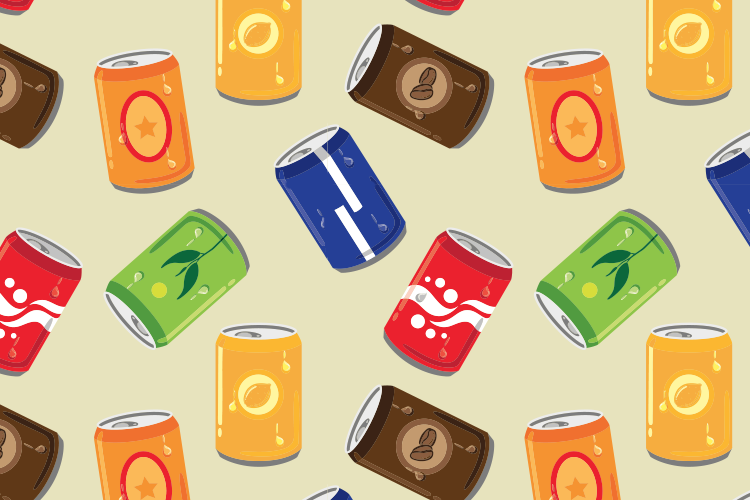Blog
Age, weight, cancer and sugar sweetened beverages: new research

Iced tea, Fanta, and Gatorade lovers beware!
Drinking high amounts of soft drink and other sugary beverages is just no good. It is associated with increased risk of type 2 diabetes, cardio-metabolic diseases, obesity, and even some cancers.
In an effort to identify groups more likely to overindulge in the sweet drink, researchers from the Louisiana State University (LSU) Health Sciences Center in the U.S. analysed data of 22,182 individuals captured in the National Health and Nutrition Examination Survey (NHANES) 2003-2012.1
“The objective of this study was to closely evaluate the risk factors of sugar consumption from sugar-sweetened beverages among cancer survivors and people not diagnosed with cancer. Recently growing evidence suggests a link between sugar-sweetened beverage consumption and the risk of pancreatic and endometrial cancer, as well as the risk of colon cancer recurrence and death among cancer survivors, ” says senior author Melinda Sothern.
Criteria examined included the amount of sugar-sweetened beverage (SSB) consumed – such as soft drink, sports and energy drinks, fruit-flavoured and sweetened fruit juices, sweetened tea and coffee drinks, among others – along with incidence of cancer, obesity and smoking, and gender, race, age, and educational and economic status demographics.
The results
15.7% of participants had high added sugar intake from SSB, and those consuming more than 80g per day were more likely to be young, male, smokers, obese, and of low economic status. Such risk factors have also been reflected in Australia.2
The researchers also found that those with cancer generally consumed less added sugar from SSB – but this may due to age, as those that are older (62 years on average) may drink less than their more youthful counterparts (45 years on average).
However, survivors of cervical cancer consumed high amounts at 60g of added sugar per day. Survivors of other cancers consumed on averaged 30-40g per day. Considering the WHO recommended limiting intake to 25g per day for health benefits, these remain shockingly high statistics!
What the results do highlight is where the education around reducing consumption is most needed.
“Although consuming added sugar is not recommended, people are not usually aware of how much sugar they get from sugar-sweetened beverages,” says Lead study author, Tung-Sung Tseng.
Inflammation, obesity, cancer and SSB
Free, simple sugar like fructose is easily absorbed when delivered in a drink, and overconsumption places a significant burden on the body short and long-term.
Blood glucose levels spike and plummet, the pancreas works overtime to pump out insulin to get the sugar out of the blood, production of inflammatory cytokines increases, and cell and tissue damage throughout the body can occur.
Past research has correlated recurrence of colon cancer and earlier mortality in survivors who consumed 2 or more SSB per day. And risk was further increased in those who were obese or less physically active.
In fact, cancer, obesity, and high intake of SSB are all connected, and each linked with high levels of systemic inflammation in the body. And a recent review by the International Agency for Research on Cancer (IARC) correlated obesity with increased risk of 13 cancers, including those of the stomach, kidney, pancreas, endometrium, ovary, liver, gallbladder, breast (in post menopausal individuals), blood and the tissue surrounding the brain and spine.4
Overall, the research out of LSU surmised the need to target intervention programs to those groups consuming too much sugary drink.
Though regardless of your health or demographical status, we would all be doing our body a favour to limit or eliminate liquid syrup altogether.
By Angela Johnson (BHSc Nut. Med.)
References
- Tseng, T Lin, H Griffiths, L Cornwell, K & Sothern, M 2016, ‘Sugar intake from sugar-sweetened beverage among cancer and non-cancer individuals: the NHANES study’,Translational Cancer Research, [Epub ahead of print]
- Cancer Council Australia 2016, Position Statement – Sugar Sweetened Beverages, viewed 6 October 2016, <http://wiki.cancer.org.au/policy/Position_statement_-_Sugar-sweetened_beverages>
- Fuchs, MA Sato, K Niedzwiecki, D Ye, X Saltz, LB Mayer, RJ et al. 2014, ‘Sugar-Sweetened Beverage Intake and Cancer Recurrence and Survival in CALGB 89803 (Alliance)’, PLoS ONE, 9, no. 6.
- Lauby-Secretan. B Scoccianti. C Loomis. D et al. 2016, ‘Body Fatness and Cancer — Viewpoint of the IARC Working Group’, The New England Journal of Medicine, [Epub].











